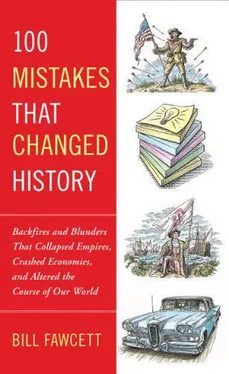Sulla proclaimed himself dictator and remained in the role even after the death of Marius years later. He retired from politics in 79 BCE, but not before he had packed the Senate full of his friends, giving them more authority, while decreasing the power of the tribunes. Sulla’s rise to power put a sour taste in the mouths of the government officials, and they vowed to prevent any future recurrences. So, to curb the enthusiasm of overzealous generals, new laws were put into place. In spite of these laws, a new golden boy rose up through the ranks and won favor with the Senate.
Gnaeus Pompeius, better known as Pompey the Great, became consul despite being underage and having never before held office. He immediately rescinded one of Sulla’s laws, thereby restoring authority to the tribunes. Pompey seemed to be paving the road to his own dictatorship. However, after defeating the Mithridates of Pontus, Pompey disbanded his army and waited for an official invitation to enter the city in triumph. Although the Senate granted him a triumph, they refused to honor the agreements Pompey had made with foreign monarchs, and they did not approve the land grants for his veterans. Pompey formed a secret alliance with two other men who had been slighted by the Senate—Marcus Licinius Crassus and Gaius Julius Caesar.
Crassus is perhaps best known for his part in squelching the slave rebellion led by Spartacus. Caesar, of course, needs no introduction. In what became known as the First Triumvirate, the three members sought to use their influence to control choice offices and military commands. They did not seek total control. But, as is often the case, the appetites grew with the taking. Each man gained his own victories and jealousy soon began to rear its ugly head. After the death of Crassus in 53 BCE, Pompey and Caesar launched campaigns to destroy each other. While Caesar gained status from his military victories in Gaul, Pompey consolidated his power in Rome. Through their persuasion, the two men used the Senate as pawns to gain the upper hand in their personal feud. Pompey convinced the Senate to order Caesar to disband his army. It was the final straw.
Caesar’s famous march across the Rubicon was in direct response to Pompey’s vie for power. With the exploits of Sulla still fresh in their minds, most of the Senate fled, along with their ill-prepared leader. Caesar pursued Pompey through Spain, Greece, and finally Egypt, where his old rival and in-law was promptly stabbed to death as soon as his feet hit the dry Egyptian land. The assassin worked for the boy-king Ptolemy, who feared befriending Pompey on account of Caesar and also feared letting him escape. Ptolemy ruled Egypt alongside his alluring sister, Cleopatra, and we all know the scandal she caused. So Caesar became involved with the beautiful, exotic woman from a far-off land; he wanted to be worshiped as a god and wanted absolute power.
When Caesar returned to Rome, his authority far surpassed that of the Senate. With this power, he accomplished a great many deeds. He pardoned many of his old rivals, including Cicero, and had them reinstated into office. He created jobs for the poor and put a tighter leash on crime, and he corrected many problems in the empire’s administrative system. He planned roads, and he even gave us the Julian calendar. Many Roman nobles concerned themselves less with Caesar’s accomplishments and more with his motives. They suspected that, like Sulla, Caesar sought to make himself dictator. In fact, his unlimited power coupled with the fact that Caesar believed himself to be a god, left very little doubt in the minds of the people as to his plans. He would not be willing to simply step down from such a powerful position. This is what convinced certain members of the Senate in 44 BCE that the only way to put an end to Caesar’s reign would be to put an end to Caesar.
The conspirators should have taken a page from their own history, because looking back from the time of Drusus it becomes evident that the death of a dictator did not always guarantee the fall of the dictatorship. There would always be someone waiting for his chance to rise up and seize power. In the case of Caesar, three men rose up to take his place. This Second Triumvirate was made up of Caesar’s friend Marc Antony, who ruled in the east; Caesar’s great-nephew and heir, Gaius Octavius, who ruled in the west; and one of Caesar’s lieutenants, Marcus Aemilius Lepidus, who ruled in Africa. As with the First Triumvirate, each one of these leaders had his own personal agenda, and each wanted absolute authority.
The only deed they accomplished together was punishing the conspirators in Caesar’s assassination. After that, it was every man for himself. Octavius seized power from Lepidus in Africa, and he took over total control of the Italian homeland, which the three had originally ruled together. He then set his sights on Antony and produced a document that was allegedly Antony’s will and read it aloud before the Senate. The will bequeathed all of Rome’s interests in the east to Cleopatra. The enraged Senate gave Octavius permission to revoke Antony’s power and wage war on Cleopatra. Octavius crushed the infamous duo, after which the two lovers reportedly committed suicide. The Battle of Actium finally put an end to the constant civil wars that beleaguered Rome. Unfortunately, it also put an end to the Republic. For the next 500 years, Rome would be ruled by one supreme authority, known as “the Caesar.”
What Gaius Julius Caesar’s assassins failed to realize was that the power of Rome lay in her army. Control the army, and you control Rome. Numerous great generals who rose up through the ranks, many of them not even Italians, were able to become emperor of Rome just because they had an army behind them.
When Julius Caesar died, he was at the peak of his popularity with both the army and the people of Rome. But, as modern-day polls have shown, popularity waxes and wanes. Today’s star is tomorrow’s has-been. Before his murder, Caesar’s health was already failing him. Eventually, his funds would have run low. And, it is likely that the people’s esteem for him would have run out when he failed to solve all the problems his predecessors had wrestled with. From this position, the Senate could have then undermined their dictator’s authority and regained control of the army. With the Senate as the head of government, Rome might have avoided the rise of despotism altogether, and the names of insane radicals such as Caligula and Nero would have faded into oblivion.
14. GOTTA KNOW THE TERRITORY
Varus’ Lost Legions
9 CE
The worst loss of Roman legions in the history of the empire came about because just one man had poor judgment. That man was Quinctilius Varus. In 9 CE, the Roman empire was still expanding. Julius Caesar had conquered Gaul up the Rhine, and other Roman commanders had later expanded the conquest under Augustus until they nominally controlled much of today’s Germany. Yes, at the high point of Roman expansion the empire did rule Germany… just not for long.
Quinctilius Varus had been a very competent governor of Syria. He had even led some small, but very successful, military actions there. Mostly, he was an administrator. Governors in the Roman empire were expected to enrich themselves with a piece of the tax revenue along with delivering large amounts of gold and silver to Caesar Augustus in Rome. Most of the ways they did this would get you arrested today, and Varus had proven he was very good at squeezing taxes out of the rich merchants and large estates of Syria. His reward for success, when his term as governor ended, was to be given another province to govern. Unfortunately for Rome, this one was Germany.
The basis of the mistake that cost Rome their legions was really the differences between the two provinces. Syria was a settled, highly civilized, and wealthy province. Germany was none of those things. Where Syria had great cities, some a thousand years old already, the German tribes were mostly seminomadic. Even their villages tended to be temporary. While Syria had been ruled by distant empires for most of its 2,000 years, the German tribes were fiercely independent and resented the new intrusion of Roman rule. Finally, Syria was a land with plenty of gold and silver, whereas Germany was metal poor and wealth was often measured in cattle, not coins.
Читать дальше












